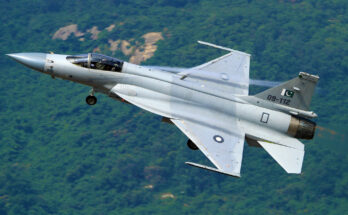
The long-troubled Denel received a boost in its restructuring efforts when the South African government agreed to recapitalize the ailing firm with a ZAR3.4 billion injection in late 2022. The funding is the latest attempt to keep the state-owned company from failing completely.
Denel had performed well in the past, but by 2017 a decline began to emerge brought on by weak leadership, poor project execution, and bad contract management. The slide accelerated toward a cliff edge during the COVID-19 pandemic with fears that the company would be placed under business rescue – South Africa’s version of bankruptcy protection. Between 2016 and 2021, revenues dropped from a high of ZAR8.2 billion to less than ZAR2 billion.
As Denel seeks to change course, a plan was announced in 2021 to reorganize from six operating division to two – one focused on engineering and the other on manufacturing and maintenance. In addition, the company would reduce its facilities’ footprint and divest non-core operations as part of the program as well.
By late 2022 the plan had been altered slightly, with the company now looking to reduce the current operating divisions from six to four. Facility rationalizations remain a key effort, with the goal of raising ZAR1.8 billion. Meanwhile, the firm will exit loss-making operations and implement a shared services model in areas such as supply chain management, finance, and human resources across its units in order to improve efficiencies and profitability.
Unlike previous efforts, which sought to find equity partners to invest in the company, this latest attempt goes to the roots. To reduce costs, the current strategy aims to reformat the basic operations by eliminating redundancies across the group and selling off non-core assets.
If the restructuring is successful, Denel could be well-positioned to take advantage of the growing global defense market. However, it could be a matter of too little, too late. The years of neglect have led to a loss of highly skilled workers who have fled due to the lack of pay. This exodus will make finding buyers for various operations difficult due to their diminished capacity. Further, competition has only increased on the global defense stage, and the past taint of corruption and political interference in the state-owned firm could make a recovery even more difficult.
While it was not easy for South Africa’s government to swallow, the capital injection is the best hope for Denel’s recovery. It will give the company time to further refine its plan and, hopefully, execute it successfully.
Forecast International’s Defense & Aerospace Companies, Volume II – International service includes coverage of over 90 top companies and subsidiaries outside North America, with a focus on key players in Europe and Asia. Each of the volume’s 50+ reports contains data on recent programs, mergers, and joint ventures. Among the notable corporations covered are OEMs such as Airbus, Aviation Industry Corporation of China (AVIC), BAE Systems, and Embraer. Also featured are Tier I and Tier II contractors such as Rolls-Royce, Hanwha, Rafael, RUAG, and Mitsubishi Heavy Industries. Click here to learn more.
A military history enthusiast, Richard began his career at Forecast International as editor of the World Weapons Weekly newsletter. As the Internet became central to defense research, he helped design the company’s Forecast Intelligence Center and now coordinates the FI Market Recap newsletters for clients. He also manages two blogs: Defense & Security Monitor, which covers defense systems and international security issues, and Flight Plan, focused on commercial aviation and space systems.
For more than 30 years, Richard has authored Defense & Aerospace Companies, Volume I (North America) and Volume II (International), providing detailed data on major aerospace and defense contractors. He also edits the International Contractors service, a database tracking all companies involved in programs covered by the FI library. Richard currently serves as Manager of the Information Services Group (ISG), which develops outbound content for both Forecast International and Military Periscope.



